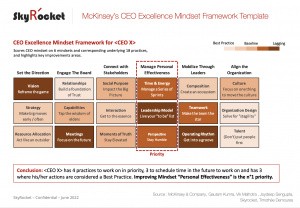Joint Venture Best Practices Start the discussion!

What is a Joint Venture?
A Joint Venture is a commercial arrangement in which two or more parties share their resources to achieve a particular objective, for example in a new project. Whilst the venture itself is its own entity independent of the two parties, each of the participants in the Joint Venture are responsible for its associated profits, losses, and costs.
The parties that engage in the Joint Venture can be formed of any legal structure, such as corporations, partnerships, and LLCs. Joint Ventures can combine companies of all sizes and can take on several different-sized projects and deals. They can cover a range of collaborative business arrangements which involve varying degrees of integration and which may be for a fixed or indefinite duration.
Why do companies enter into a Joint Venture?
1. Leverage Resources: One of the greatest benefits of a Joint Venture is that it takes advantage of the resources of both companies to achieve the goal of the venture. If one party has a successful manufacturing process, and the other has better distribution channels, the Joint Venture will profit from both.
2. Cost Savings: By using economies of scale, both parties in the Joint Venture can leverage their production at a lower cost per-unit than they would individually. For example, this is particularly useful with technology advances that are expensive to implement separately. Other examples include sharing advertising or labour costs.
3. Combines Expertise: The Joint Venture also profits from the unique backgrounds, skillsets, and expertise of each party. The most important document in any Joint Venture, regardless of its legal structure, is the Joint Venture agreement that lays out each parties’ rights and obligations. Additionally, the objectives of the venture, the primary contributions of the partners, the day-to-day operations, and the rights to the profits, and responsibility of the losses of the Joint Venture are all set out in this agreement.
4. Enter Foreign Markets: Another advantage of entering into a Joint Venture is that is provides the opportunity to partner up with a local business to enter a foreign market. If a company wants to expand its distribution network to new countries, then they can enter into a Joint Venture agreement to supply products or services to a local business and thus benefit from a pre-existing distribution network. Given that many countries have restrictions against foreigners entering their market, engaging in a Joint Venture with a local company in the desired market is practically the only way to do business in the country.
Are there any disadvantages of entering into a Joint Venture?
Entering into a Joint Venture can often limit the external activities of the participating parties while the venture is in progress. Parties are commonly forced to sign exclusivity agreements or non-compete agreements which affects their pre-existing relationships with vendors and other business contacts. Furthermore, the contract under which the venture is created can also expose the parties to liability inherent to a partnership unless they establish the venture as a separate business entity.
What is the different between a Joint Venture and a Partnership or Consortium?
The first thing to note is that a Joint Venture is not a partnership. Partnerships are single business entities that are formed by two or more people. Conversely, Joint Ventures unite two or more different entities in a new, separate one, which may or may not be a partnership.
However, the term ‘consortium’ can, in some instances, be used to describe a Joint Venture. Where the two differ though is in the fact that a consortium is a more informal agreement between various different businesses rather than creating a new one. For example, a consortium of travel agencies can negotiate and give members reduced rates on their holidays, but it does not create a new and distinct entity.



